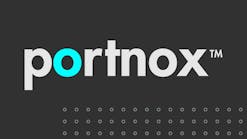There is no doubt that when we look back in 20 years to 2020, we will see a turning point in human history. In addition to the pandemic’s impact on human health across the globe, it will be a defining moment when long held patterns of human behavior will be challenged. It will be the moment we rethink many of the normal ways of operating our daily lives, both personal and professional.
Activities that seemed routine may never get back to what we think of as “normal,” like airline travel, commuting to an office, shopping for groceries, or attending in-person concerts and conferences. The pandemic has changed how we experience these types of activities forever. Technology will be a catalyst for much of the changes we will see. Just as we see technology change how we hail a cab, order takeout, and book travel, we will see technology transform how we interact with the world around us post-pandemic.
Even before the pandemic, property technology (PropTech) investing was at an all-time high. According to Andre Jang from PereNews, “venture capital has poured billions of dollars into the PropTech market in recent years - $75.2 billion since 2015.” While PropTech investment is not new, it is poised to accelerate with the impact of the pandemic.
Despite the economic uncertainties that have been prevalent this year, we’ve still seen record investments increase. For example, Proxy, SmartRent, Homeday, and Eagle Eye Networks each secured more than $40 million and a merger of StratisIoT and Realpage brought property management and apartment automation together. The stage is set for this investment to grow as we begin to see a light at the end of the tunnel with a COVID-19 vaccine and beyond the pandemic.
In an article published by Forbes in June of 2020, investors advised that companies focused on simplifying processes, reducing face-to-face interactions, or making employees/residents feel safe, are going to come out ahead. And the acceleration will come because many of the barriers to adoption pre-COVID-19 have been removed.
There are several industry trends that will attract investors and drive PropTech investments for tomorrow.
The Future of PropTech Is Mobile
With the fear of the virus living on surfaces, there has been increased emphasis placed on cleaning and toward less direct touching. The first trend will be the growing use of mobile to help reduce the spread of germs. One of the biggest changes the pandemic will drive is that physical keys will make room for an increase in mobile credentials. Our phones will become even more valuable assets as your smartphone will become your key.
For years we’ve had key fobs for car doors, but similar to the opening of doors remotely, your smartphone can accomplish the same unlocking of a physical door with the tap of a single button. Mobile credentials can also provide access to a single door or multiple facilities and building amenities. This frictionless access will reduce the need for touching surfaces, although we cannot eliminate that entirely, but unlocking the door can be accomplished with your smartphone.
Remote Management and Automation Will Be Essential
One of the hardest lessons learned when the country went into lockdown was that for those without remote access control, managing buildings and facilities required a human on-site. Another impact the pandemic will have on PropTech is the increase in remote management of facilities and buildings.
Businesses that already had a remote management solution in place when the country went into lockdown were ahead of the curve. They found that having remote access streamlined management of their facilities, especially if they were managing multiple sites. Companies realized how effective remote access was during a crisis - this is a trend that's here to stay.
Automation and remote access to systems will allow facility and property managers to access building systems without being on site. While automation is not new, the pandemic will accelerate the demand for remote access. “Glimpses of automation are already here as evident with self-guided tours, chatbots and digital work orders,” says Tech Expert Nitin Vig in the BBN Times.
Automation allows you to manage access any time and unlock doors from any location. With added video surveillance, you can view live door activity as well as recorded video footage. You can remotely assign and revoke credentials to residents or employees who need access to the office and you can send the credentials directly to a user’s smartphone. You can also initiate a lockout of the facility to ensure no one gets into a restricted area or the entire facility.
Ecommerce Puts Pressure at the Door
One sector of the economy that has seen explosive growth due to the pandemic is ecommerce. With people staying home, the need to order goods online has skyrocketed and as a result, package delivery has also exploded. Ecommerce has become more than just retail shopping too - it has become how we get our medicines, groceries and other essential items. This will have a lasting impact even after the pandemic, “as convenience has always been one of the key drivers of ecommerce participation, it is likely that many of the new users will keep ordering at least some goods online in the future,” according to the OECD (Organization for Economic Co-operation and Development).
As ecommerce continues to grow, facilities will need to adapt package delivery protocols. Since we are spending more time at home, increased ecommerce package volume will put pressure on business and property management companies to explore technology solutions to manage, track, and communicate regarding package delivery.
To get a package into a building, you need access to get through the door. PropTech solutions will include the growth of door access control, video surveillance and intercom technology to help assist the delivery and management of packages.
Data is More Than Currency
For years we’ve been talking about big data and how data is the new currency. The real trend moving forward will not be just collecting data, but the “real power of data lies more in the insights that can be derived from it and the resulting actions that such insights help trigger”, said Vig back in 2019.
It’s a travesty of the digital age – we have so much data that there’s no way to render it useful to make actionable decisions or gain insights. The trend will be a solution how to collect data without investing hours or manual labor to derive meaning, use data to help make decisions, be more efficient, and more effective. The trend will be that more property and security managers will look for solutions that 'make sense' of the data to help them with discovery, risk assessment and prioritization of actions. Solutions that allow you to not just collect data, but to easily use it to make informed decisions will be the kind of solutions that will accelerate the post-pandemic future.
To Do All This, You’ll Need the Cloud
In order for solutions like mobile credentials for doors, remote facility management, video surveillance, and other PropTech solutions, you will have to use cloud-based solutions. Only by making the leap from older, on-premise solutions can you acquire technology that is easily managed, accessible anywhere, and consistently managed and updated to the latest version.
For the millions of businesses and properties who never considered moving to cloud-based access control and video solutions, now will be the time to do your research. There is no doubt 2020 has been a year for the record books. As we enter into a new year and hopefully put the challenges behind us, there will be new opportunities to take advantage of.
About the Author:
Steven Van Till is Co-Founder, President & CEO of Brivo, Inc. a cloud services provider of access control, video surveillance, mobile, and identity solutions delivered as a SaaS offering. He also serves as Chairman of the SIA Standards Committee, and is a frequent author and speaker for numerous security publications and forums, and the inventor of several patents in the field of physical security. Mr. Van Till was previously Director of Internet Consulting for Sapient Corporation, where he lead client strategy engagements for the first wave of the dot.com era. At the healthcare informatics company HCIA, Steve was responsible for Internet strategy for data analytics services. Steve also has more than 10 years of experience in wireless communications as Vice President of Software Development at Geostar, and as Director of Systems Engineering at Communications Satellite Corporation. Steve is the author of "The Five Technological Forces Transforming Physical Security." In his first book, he shares his journey through the surprising ways that the biggest disruptors of our time--cloud, mobile, IoT, social, and big data--are impacting the physical security industry and the people Brivo protects.




